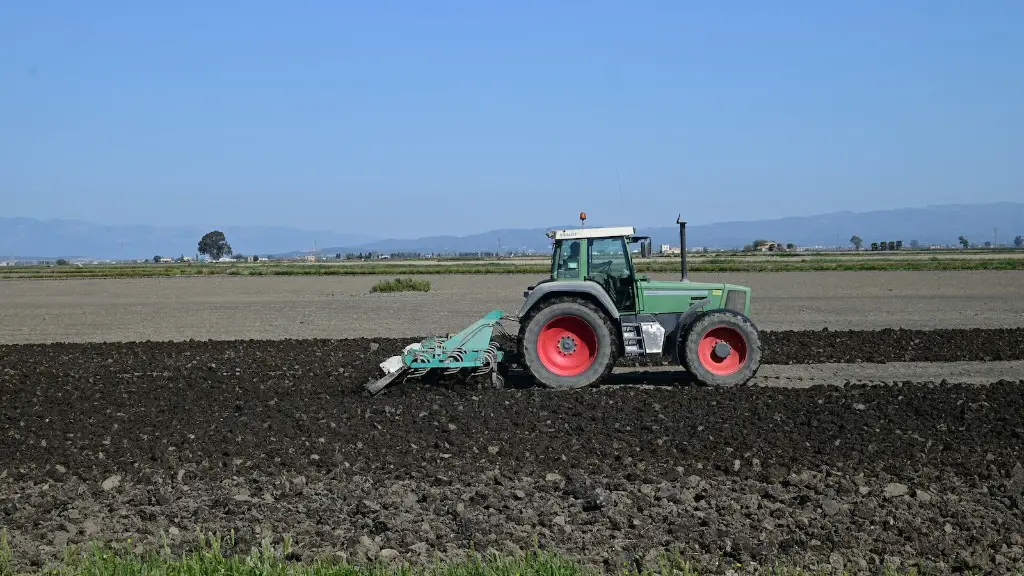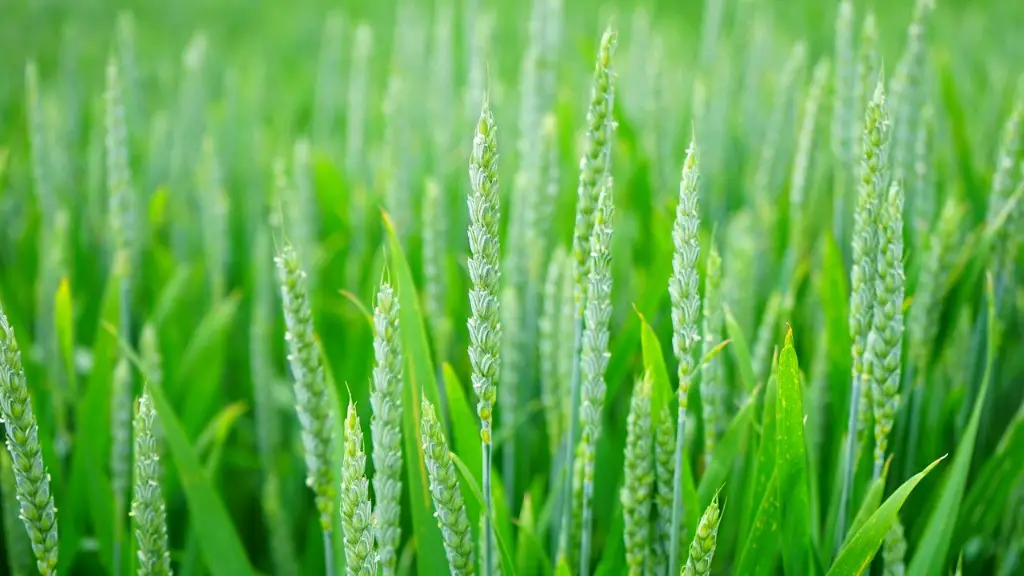Auxins are one of the most important groups of plant hormones, and are used in agriculture for a variety of purposes. One of the most common uses of auxins is to promote plant growth. Auxins can also be used to control the shape of plants, and to promote the development of fruit and flowers.
Auxins are a class of plant growth regulators that promote cell growth and division. They are often used in agriculture to promote the growth of crops and to increase yields.
What are auxins give any two applications of auxin in agriculture?
Auxin is a plant hormone that promotes growth and development in plants. It is involved in a plant’s response to light and gravity, and helps to regulate the growth of roots and shoots. Auxin is also used as a herbicide for destroying weeds, and can be used to induce rooting on stem cuttings and to induce flowering in flowering plants.
Auxins are a group of hormones that can be used for various purposes, such as weed killers, rooting powders, and promoting growth in tissue culture. Auxins are usually applied in very small amounts, and they can have both positive and negative effects on plant growth, depending on the plant species and the auxin concentration.
Do farmers use auxins
Farmers, gardeners, and fruit growers can all use plant hormones. They mostly use a human-made auxin called synthetic auxin. Synthetic auxin is sprayed on crops to kill weeds. The hormone makes weeds grow too fast and they die.
Using hormone rooting powder on plant cuttings can help promote quick root development. This is because the powder contains synthetic plant hormones that help control plant growth. For example, the hormone powder can help stimulate cell division and elongation in the stem cuttings, which leads to faster root development.
How are auxins being used in the agricultural industry to increase the yield of crop plants?
Auxins are a class of plant hormones that regulate cell elongation, and thus control plant growth direction. Auxins are manufactured mostly in the shoot tips, and in parts of developing flowers and seeds. Auxins maintain dominance of the main shoot over the growth of tillers and buds, and maintain dominance of main root growth over lateral root growth.
Auxin is a key phytohormone that modulates fruit formation in many fleshy fruits through the regulation of cell division and expansion. Auxin content rapidly increases after pollination and the manipulation in its levels may lead to the parthenocarpic development. Parthenocarpy is the development of fruit without fertilization of ovules and it has many advantages such as seedlessness, year-round production, and improved fruit quality. However, the lack of seeds may also be a disadvantage because it reduces the dispersal ability of the species.
What are the 4 functions of auxins?
Auxin is one of the key plant hormones that regulate a multitude of processes in plants, from cell elongation to cell division and differentiation. Auxin also plays an important role in callus formation and morphogenesis.
Auxins are a class of plant hormone with a variety of functions. They are involved in regulating plant growth and development, and they play a role in responses to environmental stimuli. Auxins are also used in agriculture, horticulture, and forestry.
Auxins have several important functions in plants, including:
-Auxins are used to prevent premature fruit drop when applied close to the time of harvest.
-Auxins induce initiation of roots in stem cuttings.
-Auxins induce development of parthenocarpic fruits.
-Many auxins (2,4D) are used as potent herbicides.
How does auxin promote growth
Auxin is plant hormone which is synthesized at the tip of the shoot. It helps the cell grow longer. When a tendril comes in contact with a support, auxin stimulates faster growth of the cells on the opposite side which makes the tendril form a coil around the support.
Auxin is a vital plant hormone that regulates many growth and behavior processes throughout a plant’s life cycle. It is especially important for plant body development.
Which hormones are used in agriculture?
The FDA has approved the use of a number of steroid hormone drugs in beef cattle and sheep since the 1950s. These include natural estrogen, progesterone, testosterone, and their synthetic versions. These drugs help to improve the quality of the meat by increasing muscle mass and reducing fat. However, there are some concerns about the safety of these hormone drugs, as they can potentially increase the risk of cancer and other health problems in people who consume meat regularly.
Hormonal growth promotants (HGPs) are used in cattle to accelerate weight gain. HGPs are naturally occurring hormones, such as oestrogen, or synthetic alternatives. HGPs can be given to cattle either in food or water, or by injection. The use of HGPs is controversial, as some believe that they may pose a health risk to humans who consume beef from cattle treated with HGPs.
Does auxin make plants grow faster
Auxin is a plant hormone that promotes cell growth and elongation of the plant. In the elongation process, auxin alters the plant wall plasticity making it easier for the plant to grow upwards. Auxin also influences rooting formations.
Auxins are a class of phytohormones that are important for plant growth and development. They are known primarily for their ability to induce cell elongation, but they also play a role in cell division, vascular differentiation, and root initiation. Auxins are involved in many aspects of plant growth and development, and they are essential for proper plant growth and function.
What does auxin do in tomato?
Tomatoes are a type of fruit that is commonly grown in gardens and greenhouses. Like all fruits, tomatoes rely on plant hormones to develop properly. Two of the most important plant hormones in the development of tomatoes are auxin and gibberellins.
Auxin is responsible for regulating the cell cycle and expansion genes, which ultimately determines the final size of the fruit. Gibberellins, on the other hand, play a pivotal role in overall fruit development. Together, these two hormones are essential for tomatoes to develop properly.
Auxins are plant growth hormones that are involved in regulating a number of different plant processes, including ripening. It has been shown that auxins can up-regulate the synthesis of climacteric ethylene, which is a ripening hormone. In addition, auxins have also been shown to directly regulate the expression of a number of different genes involved in ripening. This suggests that auxins play an important role in peach ripening and other fruit ripening processes.
Do auxins promote fruit ripening
Auxin is a plant hormone that helps regulate plant growth. It has been suggested that auxin may play a role in promoting fruit ripening by stimulating the transcription of several ethylene components. This would result in ethylene-induced fruit ripening and softening. However, the exact role of auxin in fruit ripening is still not fully understood.
Auxin is a key regulator of plant growth and development, orchestrating cell division, elongation and differentiation, embryonic development, root and stem tropisms, apical dominance, and transition to flowering. Therefore, it is essential for plant growth and development.
Conclusion
Auxins are used in agriculture to promote growth in plants. They are also used to control the direction of growth in plants, as well as to promote fruiting and flowering.
Auxins are a class of plant hormone with many uses in agriculture. One common use is as a plant growth regulator. Auxins can promote growth, delay senescence, and increase cell division. They are often used to increase fruit size or to control stem length.





